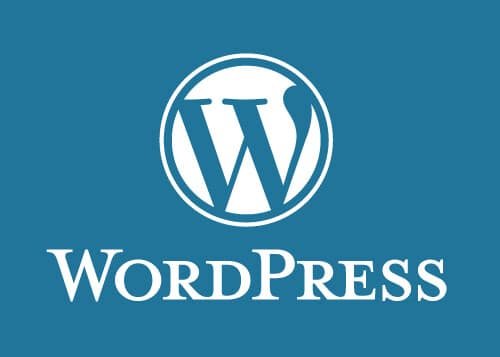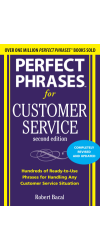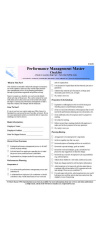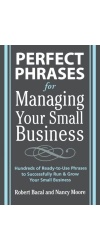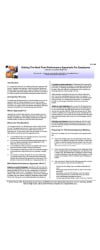It’s A Trade off For Small Businesses Using WordPress
When I search online for a service, menu or product, I often end up on WordPress sites that literally make me cringe.
Many of them consist of one or two pages, containing basic information about the business, and stand as the equivalent of online business cards.
They usually use pre-made templates that don’t suit the actual type of business, contain zero content, and provide no additional value to visitors, except contact information and location.
Here’s the rundown on things you really NEED to know about WordPress (or other blogging platforms.
Hosted Vs. Self-Hosted

WordPress comes in two quite different flavors.
Hosted WordPress
For people who want to take the easy road (when does that actually work in business?), you can open a free WordPress account, choose from a few templates, and get set up almost instantly.
That’s the hosted option. “They” do it all for you, and you need to know little if anything about web hosts, transferring files back and forth, or coding.
Then again you are stuck with what they give you, AND there are restrictions on free accounts that may limit your ability to sell advertising.
And of course, since it’s free, there’s no contractual obligation on their part to do anything. It goes down? Too bad. They decide they don’t like you and delete your account? Oh well.
It’s a risk. Maybe not a huge one. But it’s a risk. Yet the advantage is that you need to know “nothing”.
Self-Hosted On Your Own Domain
The second option has the WordPress software “living” on your web host account. So, to do it this way, you need a web host, and a domain name. These days both are relatively low cost.
But you also need to learn, because there’s tons of options to use to make your blog work, and those addons or plugins sometimes need to be configured.
So while you can get away with not knowing how to code, you still need to learn some basics about how WordPress works.
These days most web hosts offer the ability to auto-install WordPress on your account. This is not necessarily the best way to do it, because the WordPress versions they install may not be current, or may have been modified. But still, it eliminates the need to learn basics like unzipping files, and transferring them to the correct directories on your web host by yourself.
Your Absolutely MUST Knows About Using WordPress For Your Small Business
We’re going to look at the self-hosting model, because it’s the best option that lies between building a website from scratch (that’s actually the best option), and the hosted “I don’t wanna know nothing approach.”
- Make sure your blog posts (we’ll call them articles) are clearly displayed BY TOPIC. Blog software was created to be used in building a diary, so out of the box, it shows posts by date. NO good. Your customers won’t care when you wrote something, but they will browse by category.
- Make sure the name of the author of each post is displayed prominently for each post. It’s amazing to find so many blogs that have the byline missing completely, or in such small insignificant type it’s all but invisible. Come on, you are doing this to create a brand, and show off expertise.
- Nothing is sadder than a blog with no content. In fact, if you can’t or won’t add articles regularly, you are better off not having a blog or website, except to use as a business card. If it looks to visitors like there “should be articles” but there aren’t”, you look stupid and lazy.
- Make use of the rss feed that is part of WordPress (you see, you still need to learn stuff). You can use the feed from your blog to distribute updates to your Facebook, Google+, LinkedIn and Twitter accounts automatically.
- Many templates (free or purchased) have a very similar look and feel and may contain “stuff” that you don’t need displayed. For example, many of them push your content down below the fold (it doesn’t appear without scrolling, by displaying a massive graphic, or other type of display. It’s annoying to readers, but this is a good example of fitting your look to your business. That might be great for a graphic artist, but not so great for an accountant.
- Think minimalistic. Don’t be tempted to add features to your blog that have no strategic value. Sure, it might be fun to have a “widget” that displays your latest tweets, but does that help you reach your business goals? Probably not.
- Run backups of your content often. WordPress is often targeted by hackers, so you need to have frequent backups of the database and information that makes WordPress “work”. Not only does this allow you to get back up and running quickly, but if you have a backup, you can move your blog to another host quite easily by using the restore function. It’s essential to keep your blog transportable in the even that you need to change web hosts.
- More on minimalism. Google rewards fast loading sites with higher rankings, and of course users are very impatient for your site to load. Unfortunately, WordPress and other blog software are server intensive compared to a straight website. Lots of stuff gets done in the background, and that tends to slow down the rendering of the page, and incurs heavier server load (which becomes a problem if you start getting lots of visitors).
- So stay lean. Keep image sizes down to exactly what you need. Keep them small in file size. Don’t get pulled into trying out addons and plugins without having a business reason to do so. And, when you decide you aren’t using one or more of them, DELETE them.
Summing Up:
There is no question in my mind that small business serious about generating revenue on the Internet NEEDS its own website, coded specifically for the business. That requires skills most owners don’t have, which means one has to pay for having a website developed.
Also for plain old websites (rather than blogs) the process of putting articles online is going to be more complicated than for a blog.
If you simply can’t have your own website coded, then go with WordPress, but host it yourself. Yes, you (or staff) will have to learn stuff. But you will have flexibility and protection that you won’t have by using the hosted version.
And finally, if you choose the easy path — the WordPress hosted version, for goodness sake, get your own domain name. There’s nothing that shouts amateur hobby site like a URL that looks like this: http:mybusiness.wordpress.org .
And finally, finally, you can’t start and run ANY business successfully without learning, and probably learning lots each and every day. Don’t let the learning curve scare you when it comes to blogs and websites.
It’s really not that hard to learn as you go.
